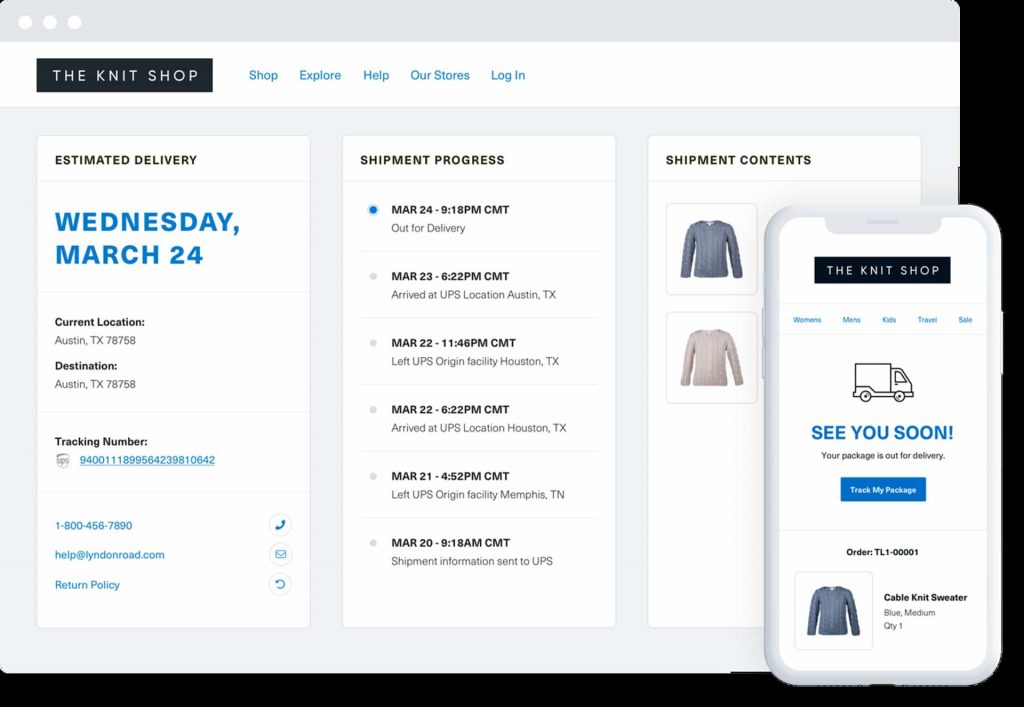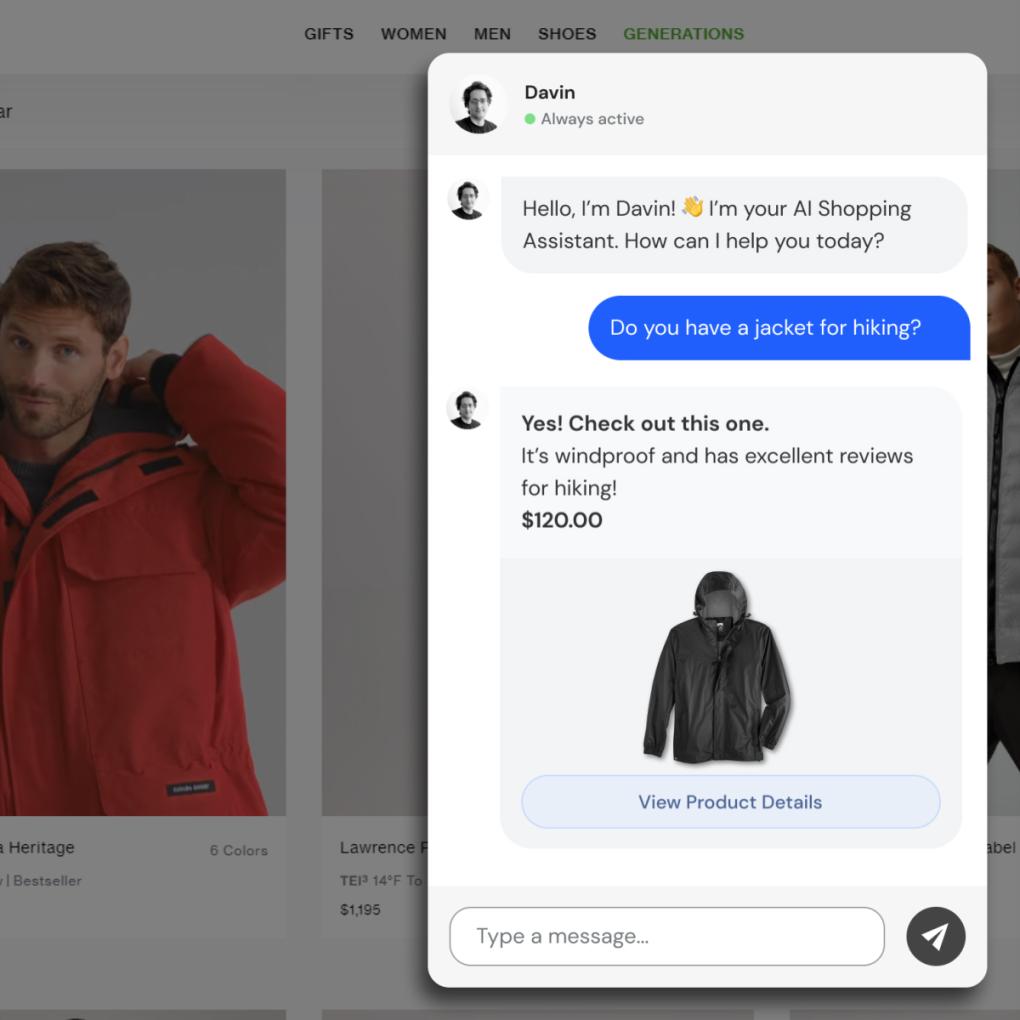Juphy’s Weekly E-Commerce News Express – 01-05 July 2024
Ceyda Duz
Welcome to our latest e-commerce and AI news roundup. This week, dive into the evolving retail landscape with insights into Pinterest’s expanding role, the rising influence of social media on UK shoppers, and exciting product updates from industry leaders like Amazon, ParcelLab, and ShipStation. Stay ahead with the latest trends and pivotal discussions in retail and online shopping – you won’t want to miss out!

Pinterest: Retail Potential Through Inspiration
Social commerce has become one of the most important channels for retail. Besides TikTok and Instagram, Pinterest has quietly emerged as a key tool for brands seeking a competitive edge. With 498 million monthly active users as of January 2024, Pinterest exceeds its origins, offering a unique platform dominated by women (76.2%) and including a significant audience earning over $100,000 annually.

Pinterest stands apart from other social media platforms used for commerce, emphasizing curated discovery. Users can create personal mood boards filled with aspirational content on Pinterest, making it less about following influencers and more about exploring personal interests and creative ideas.
The platform’s engagement metrics are impressive, with users interacting with over 1.5 billion pins weekly. This growth highlights Pinterest’s appeal as a reliable source of inspiration and information for users.
Pinterest vs. Influencer Marketing
Pinterest’s strength drives intent-driven traffic, with users often seeking specific inspiration or products. This makes it a powerful tool for brands in niche markets like DIY and sustainable fashion, where Pinterest serves as a hub for creative projects and ethical consumption.

Pins to Purchases: Driving Conversion
While Pinterest excels in driving engagement and traffic, its conversion approach differs from platforms like Instagram. The platform’s user experience is focused on planning and idea generation, which can lead to lower immediate conversion rates. However, integrated shopping features like shoppable pins bridge this gap, improving user engagement and increasing advertising revenue.
Challenges and Opportunities

Due to its curated content approach, Pinterest faces challenges in influencer marketing and immediate conversion rates. Brands must tailor strategies to resonate with Pinterest’s audience through high-quality visuals and relevant content. As Pinterest evolves into a social commerce platform, integrating more shopping features will enhance its role in driving traffic and building consumer relationships.
While Pinterest isn’t a one-size-fits-all solution, its ability to drive engagement and connect with consumers on a deeper level makes it a valuable addition to any retail brand that seeks to create a strong social commerce presence.
The Growing Influence of Social Media in UK Online Shopping
Recent findings from the 2024 Elusive Consumer Survey by Capterra shed light on shifting trends in UK online shopping behavior, particularly highlighting the increasing role of social media platforms. According to the survey, 21% of UK online shoppers have now started their product discovery journey on social media channels. This initial engagement emphasizes social media’s growing role as a pivotal starting point for consumers seeking product inspiration and discovering new brands.
Despite social media’s popularity in product discovery, the survey shows that only 7% of UK shoppers finalize their purchases through these platforms. Instead, the majority prefer to complete transactions on retailer websites or apps, emphasizing the critical role of social media in the early stages of the customer journey.
Among social media platforms, Instagram is the most popular choice for shopping exploration, with 69% of users actively browsing products. Facebook follows closely behind at 54%, while TikTok gains traction, with 50% of users leveraging it for shopping inspiration.

One compelling insight from the survey is the significant interest in discovering small or local brands on social media, with 46% of shoppers specifically seeking out these unique offerings. This trend underscores an opportunity for businesses to use social media marketing to connect with niche audiences and differentiate themselves in a competitive market.
As consumer behaviors evolve, integrating social media strategies becomes increasingly essential for brands looking to enhance visibility, effectively engage with target audiences, and drive meaningful conversions in the UK’s e-commerce landscape.
Amazon’s Discount Marketplace

Amazon is set to introduce a discount marketplace focused on affordable fashion and lifestyle products. This new initiative will showcase a range of unbranded items, predominantly priced under $20, sourced directly from China-based sellers. Through this new marketplace, Amazon aims to streamline the shopping experience by shipping these products directly from China to U.S. consumers, with delivery expected within a timeframe of nine to 11 days.
ParcelLab Introduces Returns Forecast AI
ParcelLab, known for its post-purchase experience software, has unveiled a new tool named Returns Forecast AI. This tool aims to improve operational efficiency for retailers. The AI-powered solution enables retailers to predict inbound parcel volumes more accurately, facilitating better anticipation of return trends and adjustments in warehouse resources. By leveraging AI technology, Returns Forecast AI not only aims to streamline processing times but also helps reduce operational costs associated with managing returns.

ShipStation Enhances E-Commerce Shipping Solutions in Australia

ShipStation, a cloud-based shipping platform under Auctane, has introduced several new features designed to optimize shipping operations for online businesses across Australia. These enhancements aim to improve customer experiences by offering advanced capabilities such as inventory synchronization, deliver-by-date options, harmonization code imports, and checkout rate control. Additionally, ShipStation has integrated GlobalPost Carrier and introduced a new add-on marketplace alongside customizable label options.
Transform Your Shopify Store with Juphy AI: Elevate Online Shopping
In traditional retail, the ability to ask questions and receive immediate, personalized assistance can make or break a sale. Online, however, this level of support is often lacking, leading to abandoned shopping carts and lost opportunities. But not with Juphy’s AI Agent for Shopify: The solution to turning browsing into buying. Imagine replicating the in-store experience online.
Juphy AI does just that by acting as your virtual sales associate, available round-the-clock to guide shoppers through every step of their journey. Whether it’s providing product recommendations, answering queries in real time, or resolving post-purchase concerns, Juphy’s AI Agent ensures that every customer interaction is seamless and satisfying.
Transform your Shopify store into a standout destination where shoppers feel heard, informed, and confident in their purchases, and try Juphy AI now: apps.shopify.com/juphy

Key Takeaways
Pinterest – Retail Potential Through Inspiration: Pinterest quietly emerges as a key tool for retailers, boasting 498 million monthly active users dominated by women and a high-income audience. Converting intent-driven traffic remains a challenge, despite integrated shopping features like shoppable pins.
Influence of Social Media in UK Online Shopping: Social media plays a pivotal role in UK online shopping, with 21% of consumers starting their product discovery journey on platforms like Instagram, Facebook, and TikTok. Despite initial engagement, only 7% finalize purchases directly through social media, preferring retailer websites or apps.
Amazon’s Discount Marketplace: Amazon plans to launch a discount marketplace for affordable fashion and lifestyle products under $20, sourced from China-based sellers. This initiative aims to streamline shopping with direct shipping to U.S. consumers in 9-11 days, targeting budget-conscious shoppers and expanding Amazon’s product offerings.
ParcelLab Introduces Returns Forecast AI: ParcelLab introduces Returns Forecast AI to predict inbound parcel volumes for retailers, optimizing return processing times and reducing operational costs. This AI-powered tool enhances visibility and control over the returns process, helping retailers manage resources efficiently and improve post-purchase experiences.
ShipStation Enhances E-Commerce Shipping: ShipStation introduces new features for Australian online businesses, including inventory synchronization, deliver-by-date options, and checkout rate control. These enhancements aim to optimize customer experiences and streamline e-commerce shipping processes across Australia.

